The 2020 Ngaio Marsh Awards for New Zealand's Best Crime Novel and Best First Novel will be held during WORD Christchurch Spring Festival on Saturday 31 October, 4.30pm at Tautoru | TSB Space at Tūranga. It's a free event - book your tickets now.
The Ngaio Marsh Awards began in 2010, founded by writer and reviewer Craig Sisterson, and are named after New Zealand's famous crime writer, Dame Ngaio Marsh.
With some distinctly New Zealand settings, corruption, foul play, missing persons a-plenty and wild goose chases, this year's contenders for the Ngaio Marsh Award for Best Crime Novel are strong indeed. Its anyone's choice who will win!
Seasoned crime writer Paul Cleave vies for the prize alongside first-time nominee Becky Manawatu, who is carving quite a niche for herself; J.P. Pomare, whose second book is even better than his award winner last year; the experienced playwright and fiction writer Renée, who is trying her hand at her first crime novel; retired psychotherapist Gudrun Frerichs, who gives a compelling perspective on Dissociative Identity Disorder; and R.W.R. McDonald, whose Nancy Drew themed gay crime-fighters had me in stitches.
2020 Shortlist
- Whatever it takes Paul Cleave (Upstart Press)
- Girl from the tree house Gudrun Frerichs
- Auē Becky Manawatu (Makaro Press)
- The Nancys R. W. R. McDonald (Allen & Unwin)
- In the clearing J. P. Pomare (Hachette)
- The wild card Renée (Cuba Press)
Auē by Becky Manawatu
Becky Manawatu (Ngāi Tahu) is making a splash. Her first book, Auē, took out the Ockham New Zealand Book Awards this year, during lock down. At the Ngaio Marsh Awards, Auē is nominated for Best Crime Novel and Best First Novel .
Auē is written with language that imparts sensitivity, an affinity with the land, and an experience of humanity in all its flawed glory. And it's charmingly written from the point of view of a little boy and his teenage brother.
Taukiri can hear a lament. It's in the sea, it's in his music, it's in the gang violence that has divided his family and the wind that brings the ghost of his drowned mother. Taukiri's very name is a lament, meaning 'oh dear'.
Little brother Ārama is small but tough. After the car accident which claimed his parents, Ari has left his 'real life' behind to live in Kaikōura at his Auntie Kat's farm. To him it feels like a dream: "...like something I might wake up from." (p.22)
Tauk is still haunted by the experience of diving to try to save his mother from the Kaikōura abyss: "the stony-toothed monstrous mouth of the sea" (p.31), which, he feels, is not finished with him:
"That place like a hungry mouth, flicking out its tongue against my back, wanting to swallow me whole." (p.27)
Tauk leaves Ari with his aunty and heads north, trying to put everything behind him but ends up falling into bad company. For Ari, things are not as they seem; his gruff, uncommunicative Uncle Stu is a violent, heavy drinking bully.Brave little Ari, left behind, braves 'the tide of sorrow', putting plasters on all his feelings and making a sister-friend with the only other kid around, Beth, and her dog, Lupo. Beth is tough-as, too.
Manawatu deftly captures the both the beauty and brutal spirit not just of human nature, but nature itself. The spirits of the wind (Tāwhirimātea), earth (Papatūānuku) and water (Tangaroa) are a physical presence in the story. The ending will blow you away.
The Bird motif begins with Penny Howard's cover art; 'Tūi Taonga' is repeated throughout the text:
"I am drowned.
My heart expands as if preparing for flight, but doesn't lift off. And now in its hush, like the beatless whoosh of a planing bird's spread wings, what I have done swells. Greater than the very sea we've drowned in."
Next up is Becky Manawatu's mentor, Renée.
The Wild Card by Renée
Playwright and feminist fiction writer Renée (Ngāti Kahungunu) has held the Office of the Order of New Zealand Merit (2006), the Robert Burns Fellowship (1989), the Ngā Tohu ā Tā Kingi Ihaka | Sir Kingi Ihaka Awards recognising a lifetime contribution (2013), the Playmarket Award (2017) and the New Zealand Prime Minister’s Awards for Literary Achievement Fiction Award (2018).
She has written her first crime novel, The Wild Card, at the age of 90!
Set in a Wellington coastal township (based on Wairoa and Ōtaki) with baches, pensioner flats, and a river bar with boaties, The Wild Card's plot revolves around a small-town theatre group and the historic disappearance of a young woman from an orphanage. It's delightfully choc-a-block with identifiably kiwi scenes and references, while easily fitting into the village crime genre immortalised by Ngaio Marsh herself.
Ruby Palmer; orphan, lead actress and a ghost writer researching the history of the Porohiwi Players, is attacked and her flat is trashed. Someone tries to sabotage her opening night.
Is the perpetrator trying to stop the history being written? Or are they connected to the death of her only protector at 'The Home', Betty, in 1981?
This book has a lot of red herrings and sub-plots with which to muddy the waters: who has a motive? Is it Olga, her ex-husband Oscar's mother, who broke up her marriage? Are The Circle Retirement Village owners, who are trying to expand into neighbouring property, using underhand tactics? What is the significance of the notebook? And who is the mysterious 'ghost' that appears before a disaster?
Under all this flows the question of Ruby's unknown parentage, her unresolved feelings for Oscar, who never divorced her and her poignant reunion with their dog, the now-aged Karl.
Renée uses Te Reo in context and I love her uniquely Kiwi similes:
"Sometimes the river flowed into the sea, no trouble, sometimes the sea flowed back into the river, like an old friend greeting another, but other times of day they clashed like two frustrated taniwha each wanting the same piece of crab." p.96
"The Ramona Kelly Circle Retirement Village...covered a whole block. There was one large building...surrounded by a circle of small houses crammed against each other round the large house, like a paua clinging to a rock." p.95.
"When Lady Bracknell walked out the auditorium erupted. It was like standing in a gale at the Porohiwi River bar, the noise and force of it unstoppable." p.241
With this book, Renée has created a play within a play; the novel paying homage to Renée's craft. The cast of this story behave as if in a comedy of manners - reflecting the play they are staging; The Importance of Being Earnest by Oscar Wilde. Each chapter opens with a quote from the play and In a neat twist on the original plot, the character of Ruby is left on an orphanage doorstep, in a kete.
There's a great piece where the characters muse over why people act in plays, followed by a short account of the history of New Zealand theatre:
" 'Love?' (Oscar) said.
'Love?'
'Well,' said Oscar. You have a choice. You could read plays, talk about plays, discuss their plots, their characters, the storyline, but...you choose to go in them. So you do the first one and you fall in love with the experience. So you keep doing it, maybe looking to duplicate that first feeling?' " (p.184).
" Go mad without it. The one thing in my life where I forget everything else and focus on being someone else in a totally different world." (Reilly, p. 197)
That Writing a Crime Novel course really paid off, Renée.
In the Clearing by J.P. Pomare
In the Clearing is J.P. Pomare's second book. His first book, Call Me Evie, won the 2019 Ngaio Marsh Award for Best First Novel.
Call Me Evie was set in NZ, while this book is set in Australia, with the threat of imminent bush fire. It's topical, yet this doesn't happen. Is this a ploy?
Freya is a mother living in the remote Australian bush with her young son. She was once an artist, painting scenes that were blacked out. Now they languish in her fire shelter.
The disappearance of a young girl in Australia seems to put Freya on edge: why?
"I look up, drag the steering wheel to the left, my foot finding the brake. Something flashes by. Grey-brown, leaping from the road. The Disco (-very) slews one way, then the other. The tyres grip again and I don't resist the pull of the wheel. I accelerate through the slide, the defensive driving lessons coming back. The truck straightens and I pull off the road, coming to a stop in the tall grass. Billy breathes in short, high-pitched gulps."
It's suspense and subterfuge from the first word.
Pomare, a Kiwi living in Australia, is a master of artifice - his narrators are not to be trusted and he keeps you guessing until the last minute - when you think you had it all worked out.
He even titles a section in the middle of the book. "This is how it ends."
At times Freya is plagued by memories of a child from before. Who is Aspen, and what happened to him?
Pomare's two narrators, Freya and Amy, throw us false leads that the reader notices as quickly as the human eye instinctively notes movement. Are they warnings?
Amy is from The Clearing. Its a cult which abducts children for their leader, a manipulating mother-figure. How are these two connected?
You won't believe it until Pomare is ready for the big reveal...
The Nancys by R.W.R. McDonald
R.W.R. McDonald's debut novel is a pink eye-catcher and it's funny from the outset. It's also nominated for Best First Novel.
The star of the show is Tippy Chan, a Nancy Drew fan. Big time. Her favourite villain is 'Mary Mason slash Gay'.
Clad in her 'anti-kidnap' bright red jacket, she sets off across the Taieri Plain to solve a mystery with her 'masc for masc' Uncle Pike and his effeminate boyfriend, Devon. Uncle Pike favours Bushy Trott and Snorky the (hot!) Sailor...
When her friend-slash-crush Todd, aka Lollipop, falls from the local bridge, Tippy suspects foul play. Has this got something to do with the questionable photo he shared on his phone? Who is the mysterious woman in the pic?
When Tippy's mean teacher, Miss Everson, is murdered the town reels from the grisly crime.
The plot is light-hearted and gathers much momentum as Devon and Pike attempt to help Tippy get over things, make-over the goth-girl-next-door (Melanie) for the A&P Show, and figure out who the murderer is.
It's all a bit Nancy Drew crossed with RuPaul's Drag Race:
"Devon held up The Bungalow Mystery. 'She (Uncle Pike) pretends to be so masc for masc but really she was Nancy Drew.'
Tippy: 'Nearly all of them were his. I love them too...I've always wanted to be like her. You know, solve mysteries.'
'Then why don't you?'
'...I could never do what Nancy Drew does...she's like super hero brave and always speaks up for the truth, no matter what.'
'Hello, have you met yourself?' (p.80)
Uncle Pike: "I think looking for clues is genius. Devon gets to do her sightseeing and we can all hang out. Think about it - we'll be like Nancy Drew and the Hardy Boys, with our very own mystery to solve." (p.91)
More like Tippy Chan and the Nancy Boys. And so The Nancys are born. Coining swear words (arse clown), dealing to the school bully and solving crimes the fashionista way. I was in fits. The Nancys is an irreverent antidote to serious crime.
The bit where Tippy's Mum's been packed off on a cruise had me in stitches:
" 'She's probably playing shuffleboard.'
'What's that?'
'They used to say it a lot on The Love Boat.'
'...Do you think Mum will find a husband?'
'Shit, no...but we hope she finds something that makes her happy. What makes you happy, Tippy?'
'Reading?'
'Right,' Devon said. 'So we hope your Mum finds a good hard book to read on her holiday that she really enjoys and reads a lot of and then at the end of her holiday she leaves the book behind.' (pp.72-3)
Best thing about this book is that there is a sequel due next year! And Nancy Drew is as popular as ever.
Whatever it takes by Paul Cleave
Whatever it takes is my first taste of Paul Cleave, and it's great. Full of brutal action and intrigue from the get-go; the thrills are every bit as good as a Stephen King story. Realistically detailed with a well-rounded protagonist, Cleave gained my sympathy by beating this guy up more times than Bruce Willis in a Die-Hard movie.
Cleave also imagines a believable setting, this time in the U.S. - a town called Acacia Pines. Cleave has moved away from the Christchurch settings he knows and loves, for a small town, with an isolated police force.
Noah is an ex-cop who used violence to solve a kidnapping. A kidnapping he believed was perpetrated by a fellow cop, the Sheriff's son. Finding the girl but losing his marriage and career, he has built a new life. Until the girl goes missing again. Twelve years later, Noah must face his demons (and his ex-wife) and return.
Cleave cleverly uses detail in the text to stress how Acacia Pines has changed over time. He uses repetition to imprint things on your mind. Like how isolated this place is, with its 'Green Hole' that hikers disappear into, like the chain, the handcuffs...
What is behind Alyssa's second disappearance? What happened to Maggie all those years ago? And is it over?
Cleave has a nice turn of phrase, and his sharp wit peppers lightens up the dark plot with humorous quips.
"We reach the car. The dirt floating in the air has settled. There's a warm breeze rippling across the paddocks, bending the blades of grass toward us. The thing about small towns is they give you large skies. Right now, the view is spectacular, not a single star lost to light pollution. The big sky makes me feel small, and makes Alyssa seem even smaller. By becoming a monster I've given her a chance at a big life. I don't know what's next for each of us - whether she'll bounce back...or if she'll want to hear from the world. Whether I'll end up in a jail cell next to Conrad Haggerty or if I'll be put in the ground by his father. Big skies, big questions."
With its plot twists and past regressions, this book kept me hooked and guessing. A strong contender.
Girl from the Tree House by Gudrun Frerichs
Last but by no means least is this offering from Gudrun Frerichs. Frerichs began this book years ago, but is quoted as saying she felt it had a personality disorder. Was it an essay, a non-fiction on Frerich's profession as a psychotherapist, or could it be a story? So this insightful work was shelved while Gudrun exhausted her non-fiction contribution to the field; honing her skills by writing romance novels instead.
Girl From the Tree House did become a story, and it's a good one. It's about a woman with Dissociative Identity Disorder (DID). Frerichs had wanted to write about how someone with this disorder would feel and until she could do this convincingly, without sounding clinical, she felt she could not do the story justice.
The title is compelling, the cover spooky. The story opens at a funeral. All excellent ingredients for a good thriller. And Frerichs doesn't disappoint.
She portrays her character, who hears voices in her head, with empathy. Elizabeth, the original personality, has "disappeared...Nobody noticed her when the angels took her and we were left to pick up the pieces." (pp5-6).
Her body is now ruled by 'The Tribe'. Some of the personalities in this woman are compliant, others violent. Elise is their 'front person' , unaware of the many who have her back. Through their eyes we witness how DID people are treated:
"After thirty years in the mental health system, I've heard it all. ...calling a mentally ill person crazy is no longer politically correct...Removing the label hasn't removed peoples' attitude toward someone with mental illness. (p.6).
Frerichs imparts, through her character, the differing views of medicine towards what they term 'multiples' - people with several personalities. She portrays how some medical professionals see DID as craziness that needs a drug leash to control it while others see it as an illness, a response to trauma that can be managed. Most people don't notice them changing hats.
Elise must flee from her sister-in-law, who subscribes to the former view. Escaping permanent hospitalisation and foul play, she holes up on the West Coast until her something happens to flush her out...
This is almost horror, with its ECT machines, and the eternal question: who is the true monster?
More about the Ngaio Marsh Awards
- The Ngaio Marsh Awards for Best Crime Novel and Best First Novel will be held Saturday 31 October, 4.30pm at Tūranga. It's a free event - book your tickets now.
- Ngaio Marsh Award for Best Crime Novel
- Ngaio Marsh Award for Best First Novel


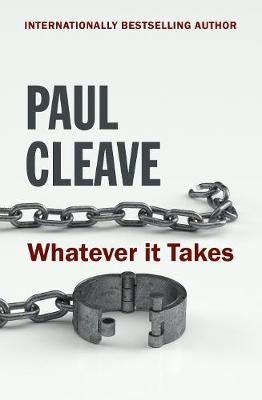
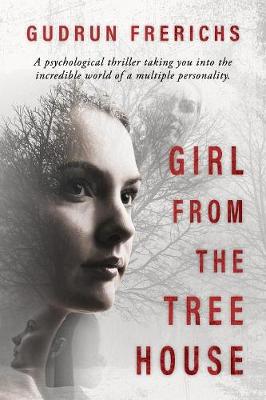
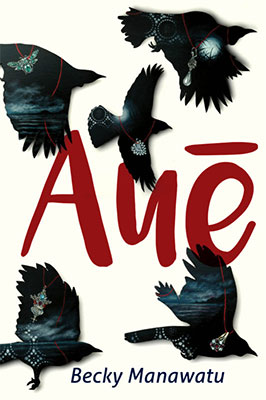
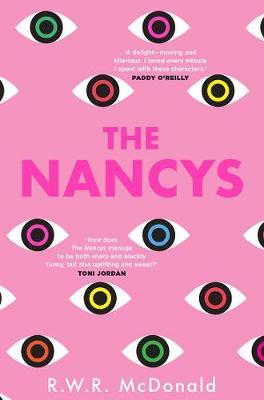
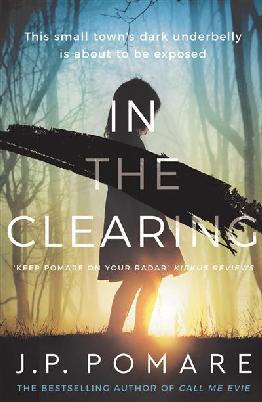
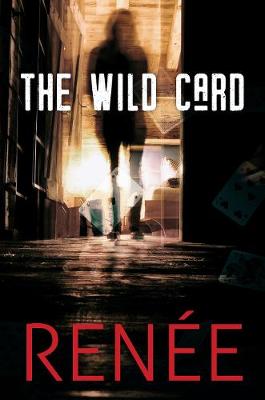

Add a comment to: The WORD on Crime: Ngaio Marsh Award for Best Crime Novel 2020